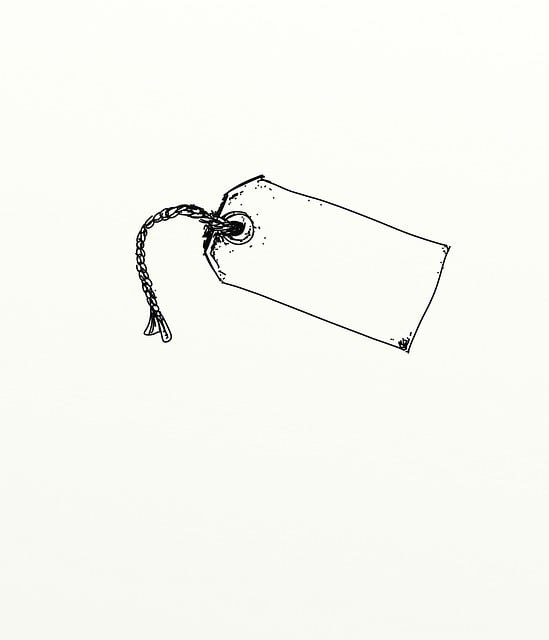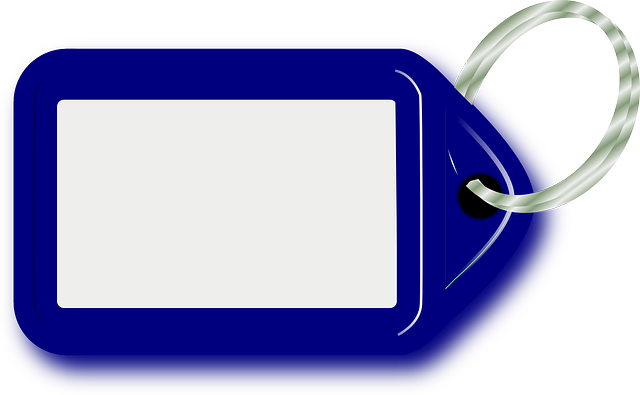Birmingham Tag Removal clinics specialize in providing personalized and effective treatment for skin tags, a common benign skin growth. These clinics offer various removal methods tailored to each patient's needs, from home remedies to advanced medical procedures like cryotherapy, electrocautery, and laser treatment. The clinics prioritize safety, hygiene, and optimal outcomes with treatments designed to minimize discomfort and downtime. Non-surgical options are particularly attractive for sensitive areas or those seeking to avoid traditional surgery's risks. Cryotherapy involves freezing the skin tag off, while electrocautery seals its blood supply with an electric current. Laser treatment uses a concentrated beam of light to vaporize the skin tag. Patients are advised to consult with a dermatologist or the clinic's specialists to select the most appropriate treatment based on individual factors. Aftercare is crucial for a smooth recovery and maintaining skin health post-removal, with Birmingham Tag Removal clinics ensuring patients receive comprehensive guidelines to aid in their healing process and achieve the best cosmetic results.
When faced with skin tags, a common and benign skin condition, individuals often ponder their removal options. Traditional surgery isn’t the sole path; innovative approaches have emerged, offering alternatives that are less invasive yet equally effective. This article delves into the non-surgical methods for skin tag removal, shedding light on the advancements in dermatological care, particularly emphasizing the role of Birmingham Tag Removal clinics. From cryotherapy to electrocautery, we explore safe and proven techniques that provide a viable alternative to surgery. Understanding these options is key to making informed decisions about your skin’s health and appearance.
- Understanding Skin Tags: What Are They and Why Consider Removal?
- Alternative Methods to Traditional Surgery for Skin Tag Removal
- The Role of Birmingham Tag Removal Clinics in Non-Surgical Solutions
- Exploring Cryotherapy and Electrocautery: Safe and Effective Non-Surgical Options
- Post-Removal Care: Ensuring a Smooth Recovery After Skin Tag Removal
Understanding Skin Tags: What Are They and Why Consider Removal?

Skin tags, also known as acrochordons, are small, benign skin growths that resemble a piece of hanging skin on a stalk or peduncle. They commonly appear on areas of the body where there is friction or rubbing, such as the underarms, groin folds, eyelids, neck, and chest. Birmingham Tag Removal clinics specialize in addressing concerns related to these skin appendages, offering various removal methods tailored to individual needs. Understanding what skin tags are is the first step for those considering their removal. Typically harmless, skin tags do not pose a significant health risk. However, some individuals may choose to remove them for cosmetic reasons or due to irritation caused by clothing or jewelry.
The process of removing skin tags can vary based on size, location, and the patient’s overall health. Methods range from at-home treatments using tea tree oil or apple cider vinegar to professional medical procedures such as cryotherapy, electrocautery, or surgical snipping. Birmingham Tag Removal clinics provide professional guidance and safe removal options under sterile conditions. It is important for individuals considering removal to consult with a healthcare provider to discuss the best method for their specific skin tag. This ensures that the procedure is carried out safely and effectively, minimizing the risk of infection or scarring.
Alternative Methods to Traditional Surgery for Skin Tag Removal

Individuals seeking removal of skin tags often consider surgical options; however, alternative methods offer non-invasive solutions for those preferring to avoid traditional surgery. Birmingham Tag Removal clinics specialize in such procedures, providing patients with a variety of effective, safe, and minimally invasive treatments. One popular method is cryotherapy, which utilizes liquid nitrogen to freeze the skin tag, causing it to fall off within days post-treatment. Another method gaining traction is electrocoagulation, which uses an electric current to seal off the blood supply to the skin tag, leading to its natural removal over time. These options are particularly appealing for those with skin tags on sensitive areas or those who wish to avoid the potential risks and recovery time associated with surgical excision. Additionally, laser treatment is another non-surgical alternative that vaporizes the skin tag with a concentrated beam of light, ensuring precise removal without significant downtime. Patients considering these methods should consult with a qualified dermatologist or a Birmingham Tag Removal specialist to determine the most suitable option based on the size, location, and overall health of the skin tag. Each of these alternative treatments can be performed in-clinic with minimal discomfort and swift recovery times, making them attractive alternatives to traditional surgery for those in and around Birmingham seeking effective skin tag removal.
The Role of Birmingham Tag Removal Clinics in Non-Surgical Solutions

Birmingham Tag Removal clinics have become a beacon for individuals seeking effective, non-surgical solutions for skin tag removal. These specialized centers offer a range of advanced treatment options that cater to various patient needs. With the advent of cutting-edge technologies such as cryotherapy and electrocautery, these clinics are at the forefront of providing minimally invasive procedures that are both safe and relatively painless. The skilled dermatologists and healthcare professionals at these facilities ensure that each treatment is tailored to the patient’s specific condition, maximizing efficacy while minimizing potential risks. This personalized approach not only facilitates quick recovery but also alleviates concerns for those who prefer non-surgical alternatives to traditional excision methods. The expertise and dedication of Birmingham Tag Removal clinics have made them a trusted choice for many, underscoring their commitment to delivering high-quality care in the realm of cosmetic dermatology. Patients often report high satisfaction with the results, which is a testament to the effectiveness of these non-surgical methods and the professionalism of the staff at these clinics.
Exploring Cryotherapy and Electrocautery: Safe and Effective Non-Surgical Options

When considering the removal of skin tags, individuals in and around Birmingham are increasingly exploring non-surgical alternatives to traditional excision. Two such methods that have gained prominence are cryotherapy and electrocautery, both of which offer safe and effective solutions for tag removal. Cryotherapy involves freezing the skin tag with extreme cold, a process that effectively destroys the tag without the need for scalpels or sutures. This method is particularly beneficial for those wary of the risks associated with minor surgery. The procedure is typically quick, with minimal discomfort and recovery time. Moreover, it minimizes the risk of infection and scarring, making it an attractive option for those seeking a less invasive treatment.
On the other hand, electrocautery employs a high-frequency electrical current to precisely cut or remove tissues, including skin tags, while simultaneously applying heat to stop bleeding and destroy any remaining cells that could lead to regrowth. This method, practiced by skilled dermatologists at Birmingham Tag Removal clinics, ensures precise treatment with reduced healing time compared to surgical excision. Patients often experience immediate relief as the electrocautery device seals blood vessels during the procedure. Both cryotherapy and electrocautery are non-surgical approaches that provide effective alternatives for individuals looking to remove skin tags in Birmingham without undergoing traditional surgery. These treatments are not only convenient but also align with the modern preference for minimal downtime and cosmetic considerations.
Post-Removal Care: Ensuring a Smooth Recovery After Skin Tag Removal

When considering skin tag removal, it’s crucial to focus on post-removal care to ensure a smooth recovery. Whether opting for professional treatment at Birmingham Tag Removal or choosing a DIY method at home, the aftercare process is pivotal in minimizing complications and promoting healing. Immediately following the procedure, the affected area may experience some discomfort, redness, or swelling. To alleviate these symptoms, applying a cool compress can be soothing. Additionally, keeping the area clean by gently washing with soap and water and drying thoroughly will prevent infection. It’s advisable to avoid tight clothing over the treated skin tag to reduce the risk of irritation.
In the initial days post-removal, it’s important to inspect the site daily for signs of infection, such as excessive redness, pus, or persistent pain. If any such symptoms arise, medical advice should be sought promptly. For those who undergo professional removal at Birmingham Tag Removal, follow-up care instructions provided by the healthcare professional should be adhered to. This typically includes refraining from picking at the area or using any harsh chemicals or treatments until fully healed. Proper post-removal care not only facilitates healing but also contributes to the cosmetic outcome, ensuring the best possible result in skin appearance once the skin tag has been removed.
In conclusion, skin tags are benign and largely harmless growths that can be effectively managed through various non-surgical methods, offering patients alternative options to traditional surgery. For those seeking specialized care, Birmingham Tag Removal Clinics stand out for their commitment to providing safe, effective, and minimally invasive solutions. With techniques like cryotherapy and electrocautery at the forefront, individuals can achieve successful removal with swift post-removal care to ensure optimal recovery. These advancements underscore the progress in dermatological treatments, making it easier for people to address their skin concerns without the need for scalpels.
